Text
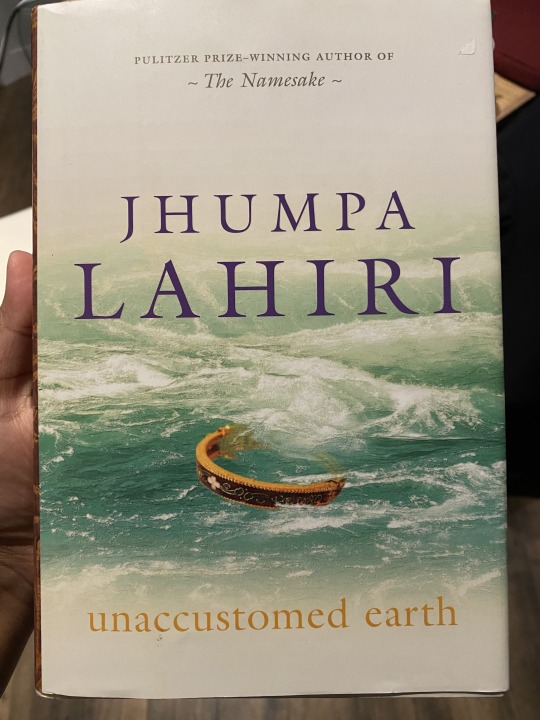
The first Jhumpa Lahiri book I owned and read.
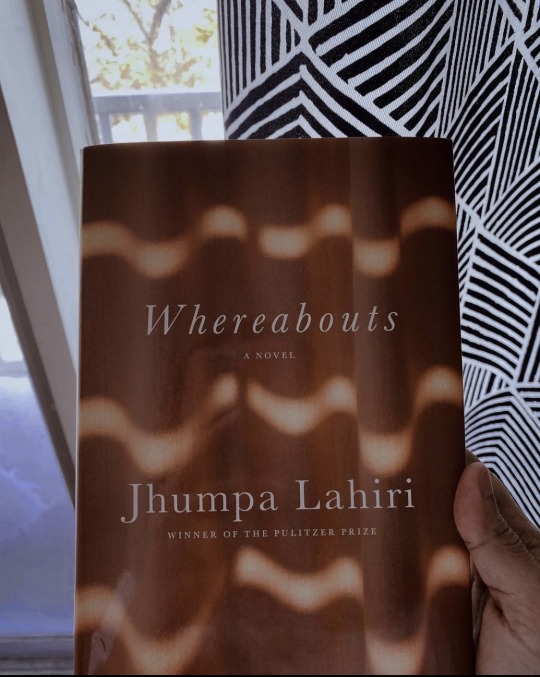
The last Jhumpa Lahiri book I read; 2022.
I read Jhumpa Lahiri's Unaccustomed Earth for the first time back in Class 9. It is a brilliantly written collection of short stories set in America which deals with Bengali families in the diaspora. Lahiri, especially in her earlier works, wrote about middle-class, academic Bengalis who struggle with assimilating to the American culture while struggling to relate anymore to their homeland. Finding a common cultural thread between us, Lahiri became a literary inspiration for me quickly. She was Bengali, educated in my dream school (Barnard College), living an academic/writerly life and writing books about Bengali characters for a living; she was everything I wanted to be during those early years.
For 5 years of my university life, I was stuck in a competitive STEM program which was chosen for me by my parents because of its lucrative job prospects. They desperately wanted me to "make it"; I wanted so desperately to please them. As a result, I had completely blocked the writer/poet in me in order to survive school. I stopped reading-the only thing that ever brought me pure, unadulterated joy-to switch off that part of myself, so I could focus more in school and succeed in my field. I got myself into a 3-year long reader's block.
In 2021, I graduated with an Environmental Science degree, like my parents wanted. And I passed with flying colours too. My capstone research project won first prize in an Undergraduate Research Showcase. I had done everything I needed to make my parents proud. And yet, I felt empty and directionless; I didn't know what I wanted to do with my degree. None of the related job prospects enticed me. Coincidentally, around this time, one of the worst possible things that can happen to an international student, happened to me. My application for a post-graduation work permit was denied. This meant that not only was I legally prohibited from working, but I might have had to leave Canada soon.
Until then, I was used to getting what I wanted from my academic life. I was a hard worker and I enjoyed the results of my hard work. But this set back was out of my control. And it made me realize, how little the work permit mattered to me; I didn't want to earn a living as an environmental scientist anyway. I realized that if life is going to throw us major curveballs, we might as well pursue what we really want.
In February 2022, I picked up a work of fiction after 3 whole years. It was Whereabouts by Jhumpa Lahiri. I chose Jhumpa Lahiri because I wanted to gain back access to the Raisa who had once lived and breathed literature. Whose entire life revolved around her favourite authors and poets, and their work. And Whereabouts did exactly that. So much so that when I finished the book-even though I had no work permit (I had re-applied for one and was awaiting their decision) and no way of knowing whether I’d be legally allowed to stay in Canada anymore-I applied for an After Degree in English. I wanted to go back to who I was before I became a vessel for my parents' expectations of me. I wanted to come back home to myself. Since returning to school to pursue my English degree, it does-in many ways-feel like coming back home.
1 note
·
View note
Text
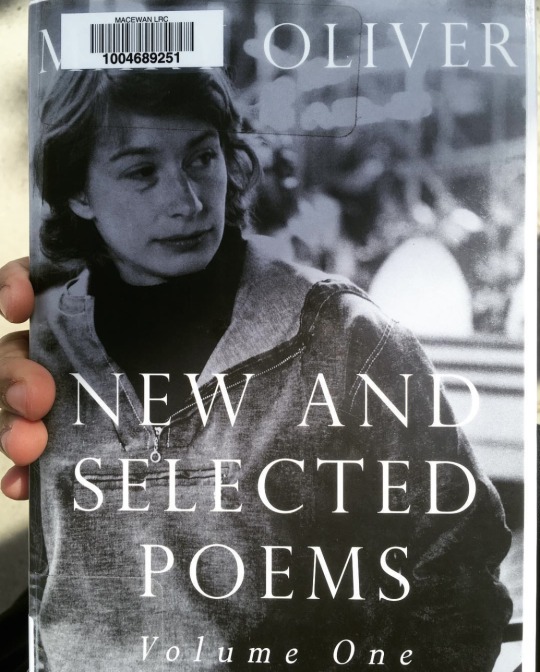
Mary Oliver Collection, borrowed from the MacEwan Library; 2019.
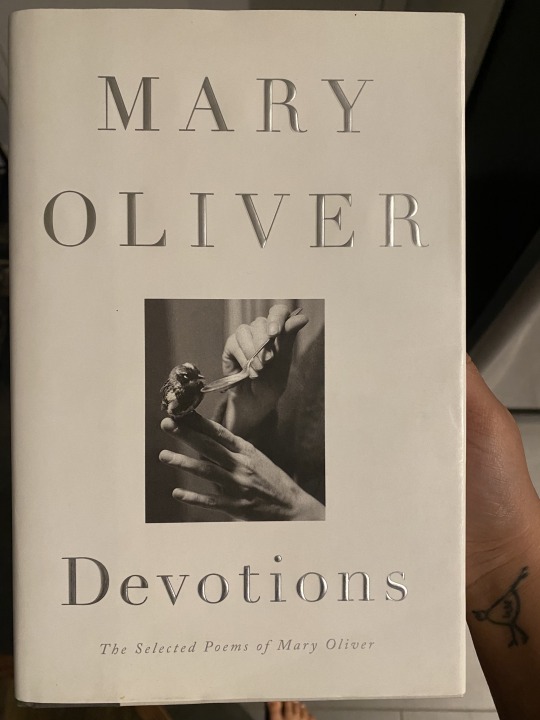
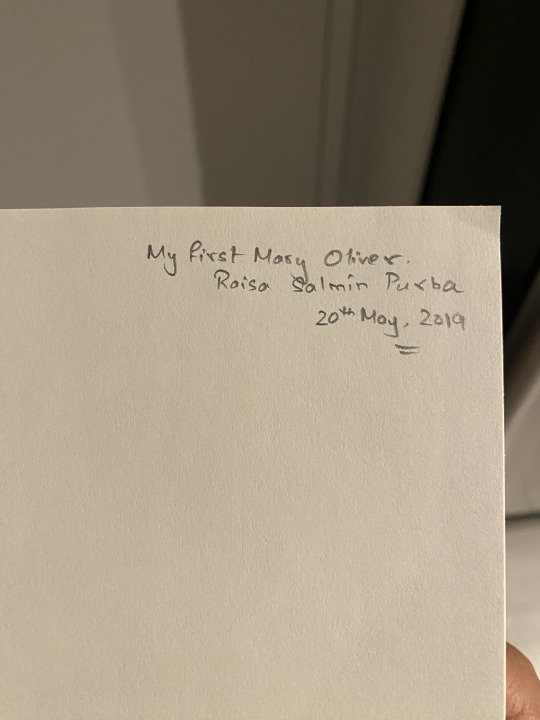
My first Mary Oliver collection; May, 2019.
From January 2019-when I first started reading Mary Oliver-till April 2019, I borrowed Mary Oliver's New and Selected Poems volumes from the University's library multiple times. So much so that one of the librarians at Rutherford commented that she'd never seen anyone check-out these volumes as much as I did.
I was obsessed with Mary Oliver for all of 2019. Her writing spoke to me: about being silent in nature, being at one among trees and the wilderness, observing wildlife with the deep admiration and respect they deserve. I took these volumes with me to remote landscapes in Alberta during my month-long field school training. They were perfect company in places where there was barely any network, let alone internet; I'd spend the whole day on the field, doing environmental surveys, stopping during lunch and dinner to rest beside a stream or bog (depending on where we were that day) to read Mary's words. To announce my place in the family of things.
At the time, Mary Oliver's collections weren't as popular as they've become recently. Plus, fieldschool kept me away from civilization for a long time. But I made a promise to myself that when I was done with fieldwork, I'd return to Edmonton and buy her biggest collection of poetry. In 20th May 2019, two days after I returned to Edmonton, I did exactly that. I went to one of the few Indigo's who carried Mary Oliver's collection at the time and got myself Devotions, her largest poetry collection. Since then, it has been a constant company during my camping and hiking trips.
0 notes
Text
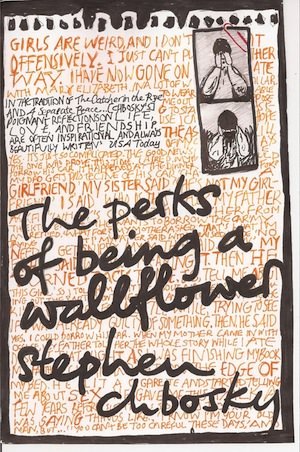
The Perks of Being a Wallflower by Stephen Chbosky (Image taken from the Internet).
It's weird to credit a young adult novel when you've passed your young adult days a long time ago. But this book was a monumental part of my teenage years, as well some some of my friends, back in high school. The Perks of Being a Wallflower was different from a lot of other young adult novels that were popular at the time, like the Percy Jackson series, Hunger Games series, The Fault in Our Stars by John Green, etc. Unlike these books, Perks provided a more realistic part of the dark side of teenager's lives that books written by other adults never really explored. This book paralleled a lot of things that was happening to or around me, my friends and our high school peers. We read it at an age when it was impossible to talk to our parents about these troubling situations: mental health struggles, reckless drug usage, sexual assault, staying in the closet out of fear of not being accepted, suicide and suicidal ideation, child grooming, etc. At the time, we didn't have the words to describe these situations. We knew it happened to us and those around us we loved, and we tried to be there for each other as much as we could. In many ways, this book did the same. It was there for us in ways our parents couldn't/didn't.
0 notes
Text
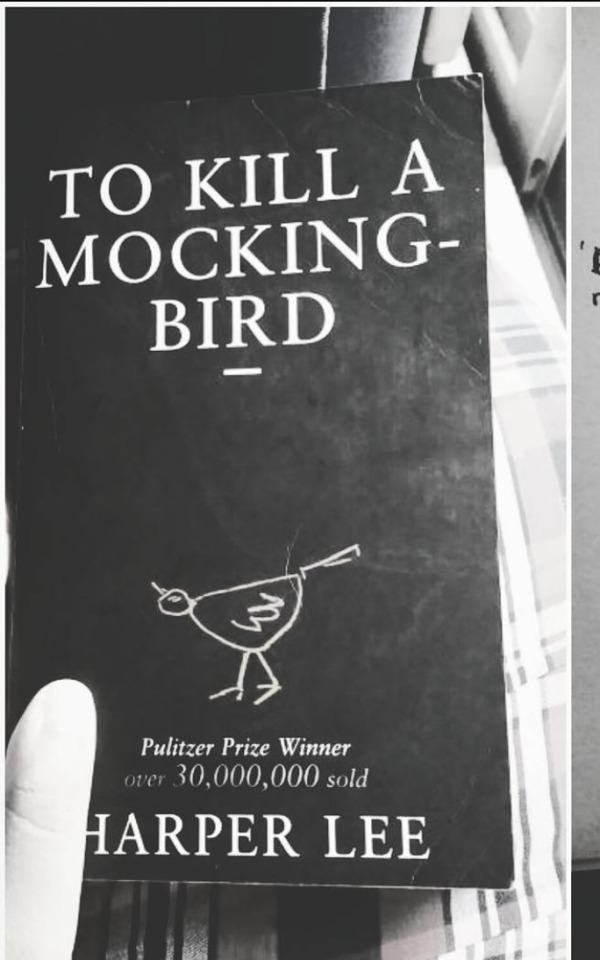
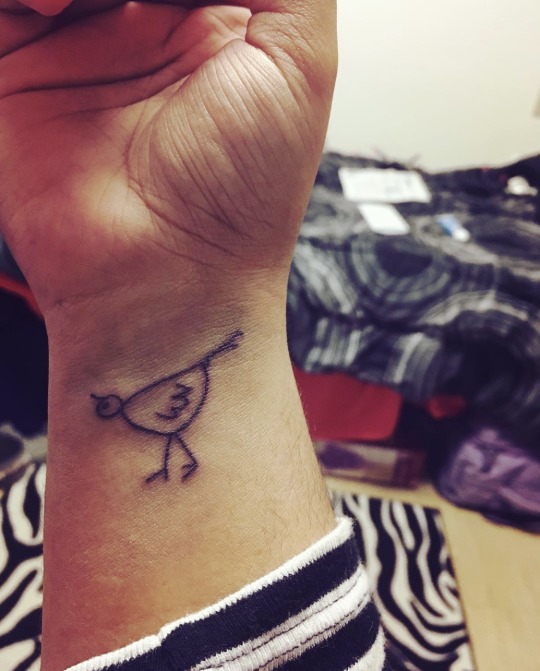
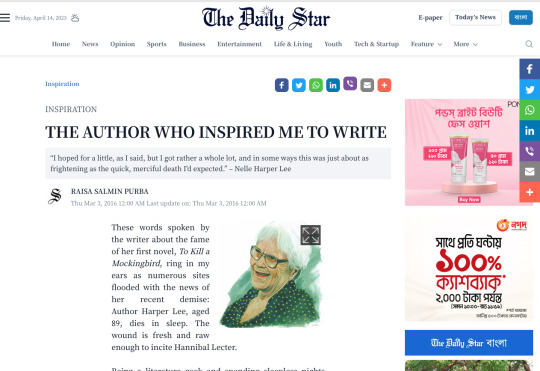
Harper Lee has a big place in my life for many reasons. Growing up, I treasured the book for its unapologetic view towards systemic racism in America. It was one of the first books in American history to do so. I also loved the character of Atticus Finch; I deeply admired his intelligence and his thirst for seeking justice. Atticus also represented the closest semblance of a fatherly figure in my life. In many ways, I wanted to be like him. I took the values and lessons he taught Scout as lessons for my own life. He was the perfect book father for a bookworm.
Naturally, when Harper Lee passed away, I was devastated. I wrote a piece that very night-a tribute to Harper Lee, her life and literary life-and sent it off to The Daily Star, the biggest and oldest English newspaper in Bangladesh. To my surprise, they agreed to post it. I was only a high school kid who was obsessed with books. This was the first time I felt that I could go somewhere with this obsession.
A year later, I decided to get a tattoo in honour of Harper Lee and my book father, Atticus Finch. I got a tattoo of the mockingbird illustration from the edition of To Kill a Mockingbird. It remains as a reminder of the lifelong lessons I learned from Atticus.
0 notes
Text
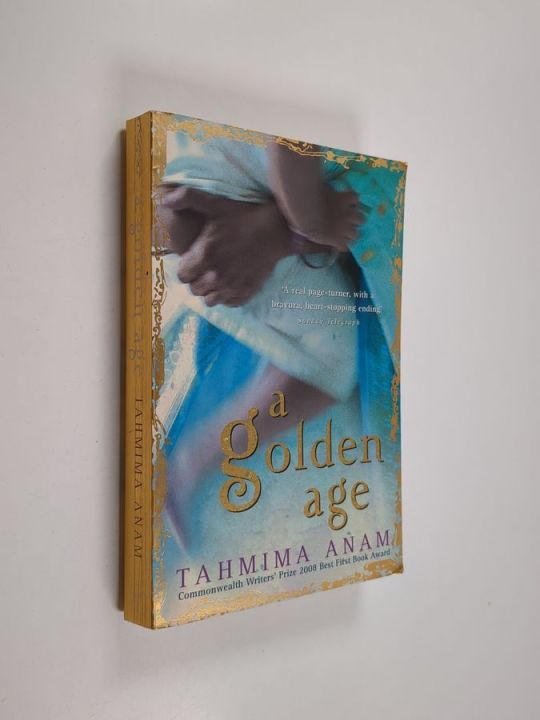
A Golden Age by Tahmima Anam (Image taken from the Internet)
I came across A Golden Age when I was in Class 8, at a newly established bookstore in Dhaka. A Golden Age is a trilogy revolving three generations of women, starting from the 1971 Liberation War of Bangladesh against Pakistan. At the time, all my favourite writers who wrote in English-Emily Brontë, Mary Shelley, Harper Lee, etc.-were white. Tahmima Anam changed my perception of who gets to write in English. It was the first time I read about the war in English, in a book published by a British publishing company.
While writers like Brontë and Shelley moved me, it was completely different to read a book by someone whose name wasn't foreign to me; whose heritage and subject matters were familiar to my background. A Golden Age sparked a change in me. I started writing fiction in English more from my own setting. Before that, my writing was-as most novices' are-imitations of my (English) literary heroes. My British education was certainly a big part of that too. But Anam planted the idea that I could use the English language to write about my own culture. It bridged the gap between my Bengali identity and the English language. It was the beginning of my journey to claim English as my own, rather than the language of my past colonizers.
0 notes
Text
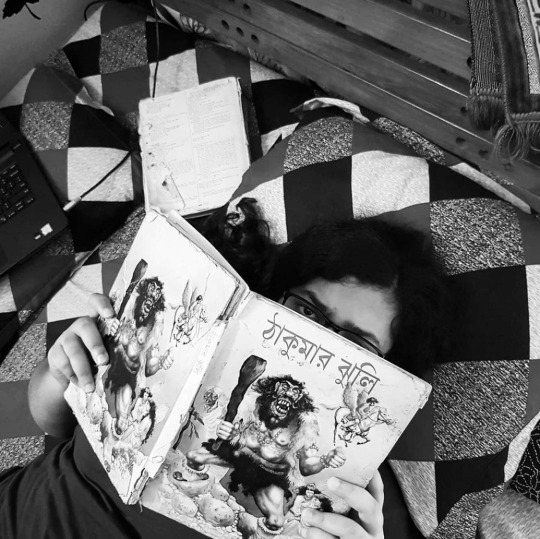
Me laying in bed at my home in Dhaka, reading Thakurmar Jhuli (ঠাকুরমার ঝুলি; Grandmother's Bag of Tales); 2015.
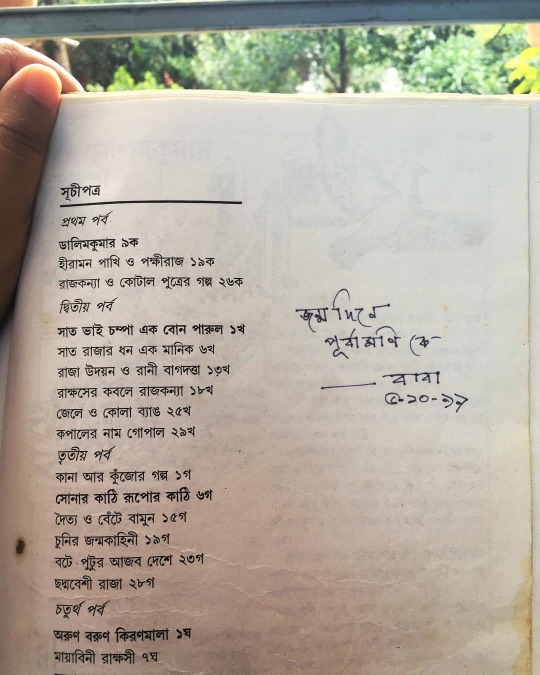
List of Contents. Inscription by my father: "For Purbamoni (little Purba), on her birthday. -Baba, 5/10/99"
Thakurmar Jhuli (Grandmother's Bag of Tales) is a collection of Bengali folktales and fairytales, and it is the very first book I owned. My Baba, who was a big reader himself, gifted it to me on my third birthday. A few years before I had the ability to read. I have the faintest memory of him reading me tales from this collection. He would sit in his big red chair on the balcony, take me in his lap and read the book out loud, as I watched the illustrations and got lost in a different world with him.
I didn't know at the time, but he'd instilled a love of reading that would stay with me for my whole life. When Baba died three years later, I often went back to reading Thakurmar Jhuli to bring back my memories of him. It was strange that a book was able to do that: bring back memories of a person who wasn't there anymore. Baba's belongings were taken by his family (mainly his mother) quickly following his death. This book and a handful of photos are the only material things I own that connect me to him.
1 note
·
View note